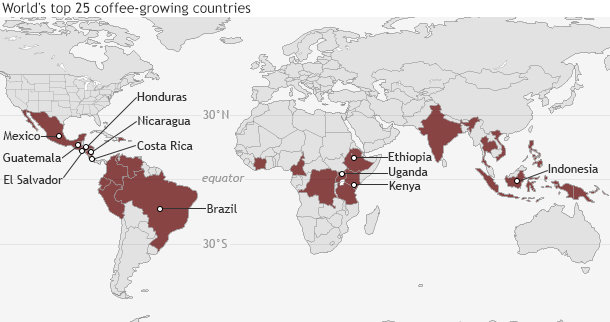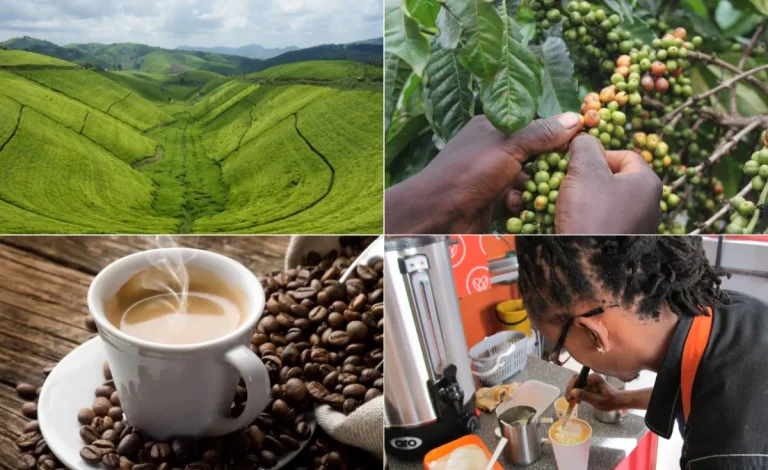Organic coffee has been gaining popularity in recent years, with more and more consumers opting for this environmentally and health-conscious option.
This article explores the definition of organic coffee and the benefits it offers, including its positive environmental impact and health benefits.
We also discuss the challenges faced in organic coffee production and how these impact consumers.
Grab a cup of your favorite brew and join us as we discover the world of organic coffee.
Key Takeaways:
- Organic coffee offers both environmental and health benefits, making it a sustainable and healthy choice.
- The production of organic coffee faces challenges, such as lower yields and higher costs, but ultimately contributes to a better future for our planet.
- As consumers, supporting organic coffee can have a positive impact on the environment and our own well-being, while also promoting ethical and sustainable practices in the coffee industry.
Introduction
Organic coffee production has gained significant attention due to its environmental benefits, sustainable farming practices, and health advantages for consumers.
With the rising awareness about the harmful effects of conventional farming methods, more and more consumers are shifting towards organic coffee.
Certified organic coffee farms adhere to strict guidelines that prohibit the use of synthetic pesticides and chemicals, resulting in a healthier product. The demand for organic coffee is driven by consumers who prioritize sustainable and ethical practices.
Despite the numerous benefits, organic coffee farming comes with its set of challenges, including higher production costs, limited access to resources, and the need for proper certification processes.
Definition of Organic Coffee
Organic coffee refers to coffee beans that are grown without the use of synthetic pesticides or fertilizers, following specific organic certification standards to ensure the health and well-being of consumers and the environment.
One of the key aspects of organic coffee production is the exclusion of harmful chemicals that can have negative effects on both human health and the ecosystems in which the coffee is cultivated. Organic certification for coffee involves rigorous checks and balances to guarantee compliance with these standards. This process typically includes audits of farming practices, soil health assessments, and traceability of the coffee beans throughout the supply chain.
By choosing organic coffee, consumers contribute to supporting sustainable agricultural methods that prioritize the environmental impact of coffee production. Organic farming practices promote biodiversity, soil conservation, and water resource management, making it a mindful choice for those concerned about sustainability. Organic coffee is often associated with higher quality and superior taste due to the natural cultivation methods employed by farmers.
Benefits of Organic Coffee
Organic coffee offers a range of benefits, including positive environmental impact, health advantages for consumers, and enhanced market value due to its antioxidant content and improved soil health.
One of the key aspects that sets organic coffee apart is its cultivation that focuses on maintaining the health of the environment by avoiding synthetic pesticides and fertilizers, thus promoting biodiversity and healthier ecosystems. In terms of consumer appeal, organic coffee is increasingly sought after due to its perceived health benefits, attributed to its reduced chemical exposure and higher antioxidant levels that can boost immune function and combat inflammation.
Environmental Impact
The cultivation of organic coffee promotes environmental benefits by preserving soil health, fostering biodiversity, and contributing to carbon storage, aligning with principles of sustainable farming.
Organic coffee farming entails utilizing natural fertilizers and compost, which enhances soil structure and minimizes soil erosion. This helps maintain the health of the soil, ensuring its long-term sustainability. The absence of synthetic pesticides and fertilizers in organic coffee cultivation promotes a healthier ecosystem, allowing beneficial insects and microorganisms to thrive, thus contributing to enhanced biodiversity.
In addition, organic coffee farms often feature shade-grown practices, where trees and vegetation provide habitats for various species of birds and other wildlife. This promotes biodiversity conservation by creating a more complex and diverse ecosystem within and around the coffee plantations, supporting the overall health of the environment.
Organic coffee cultivation aids in carbon sequestration by maintaining higher levels of organic matter in the soil. This organic matter acts as a carbon sink, helping to mitigate climate change by storing carbon dioxide from the atmosphere. By opting for organic coffee, consumers can support environmentally friendly practices that have a positive impact on the planet.
Health Benefits
Organic coffee is rich in antioxidants, particularly chlorogenic acid, offering potential health advantages such as disease prevention, improved wellness, and the option for decaffeinated variants to suit different needs.
Antioxidants in organic coffee play a crucial role in protecting cells from damage caused by free radicals, thereby reducing the risk of chronic diseases such as cancer and heart disease. The chlorogenic acid present in organic coffee has been linked to lowering blood sugar levels, aiding in weight management, and improving heart health.
The wellness benefits of organic coffee extend beyond physical health, with some studies suggesting that regular consumption may help improve cognitive function, enhance mood, and boost overall mental well-being. For those sensitive to caffeine, opting for decaffeinated organic coffee allows individuals to enjoy these health perks without the stimulating effects of regular coffee.
Challenges of Organic Coffee Production
Despite its advantages, organic coffee production faces challenges such as pest infestations, diseases, higher costs of cultivation, labor-intensive farming methods, and the need to command a premium price in the market.
Infestations by pests like the coffee borer beetle and coffee leaf rust can devastate organic coffee crops, requiring meticulous pest management practices that are often more complex and costly than conventional methods.
In the realm of disease control, organic farmers have limited options without the use of synthetic chemicals, making it challenging to protect their crops against various pathogens that could significantly impact yields.
The expenses associated with organic certification, sustainable farming practices, and quality control add up, straining the already tight budgets of small-scale coffee farmers with limited financial resources.
Consumer Impact of Organic Coffee
Consumer interest in organic coffee has surged, driven by growing awareness of its quality, ethical production methods, and its positive impact on health and the environment.
Market trends show a rising demand for organic coffee blends, with consumers increasingly opting for products that are both sustainable and flavorful. Many coffee enthusiasts prioritize purchasing organic varieties due to concerns over pesticides and chemicals used in conventional farming practices. This shift in consumer preferences has led to a significant growth in the availability of organic coffees in supermarkets, specialty stores, and online retailers, catering to a diverse range of tastes and brewing preferences.
Quality standards in the organic coffee industry are stringent, with certifications such as USDA Organic, Fair Trade, and Rainforest Alliance ensuring that products meet specific criteria for environmental sustainability, ethical sourcing, and social responsibility. These certifications not only reassure consumers about the authenticity of the product but also contribute to the overall integrity of the supply chain, fostering trust and loyalty among discerning coffee connoisseurs.
Frequently Asked Questions
What is organic coffee and what are its benefits?
Organic coffee is coffee that is grown and processed without the use of synthetic chemicals or pesticides. It is also typically grown in a way that promotes sustainability and protects the environment. Some benefits of organic coffee include being free of harmful chemicals, being better for the environment, and potentially having a better taste due to the natural growing process.
What are the challenges of producing organic coffee?
One of the main challenges of producing organic coffee is that it requires more labor and resources compared to conventional coffee production. This can make it more expensive, both for farmers and consumers. Additionally, organic coffee may be more susceptible to pests and diseases, which can affect crop yields.
How does organic coffee impact the consumer?
Consumers who choose to purchase organic coffee can support sustainable and ethical farming practices. They can also avoid potentially harmful chemicals and enjoy a better tasting cup of coffee. However, the higher cost of organic coffee may be a barrier for some consumers.
Is all organic coffee created equal?
No, not all organic coffee is created equal. Different countries and regions have varying standards for what qualifies as organic, so it’s important to research the specific certification and standards of the brand or farm you are purchasing from.
What are some common misconceptions about organic coffee?
One common misconception is that organic coffee is always more expensive than conventional coffee. While it can be pricier, there are also affordable options available. Another misconception is that all organic coffee tastes the same, when in reality, the taste can vary depending on factors such as location, growing conditions, and processing methods.
How can consumers ensure they are purchasing truly organic coffee?
To ensure you are purchasing truly organic coffee, look for reputable certifications such as USDA Organic or Fair Trade. These certifications require strict standards and inspections to ensure the coffee is produced using organic methods. Additionally, buying directly from small, local farmers can also ensure that you are getting authentic organic coffee.






